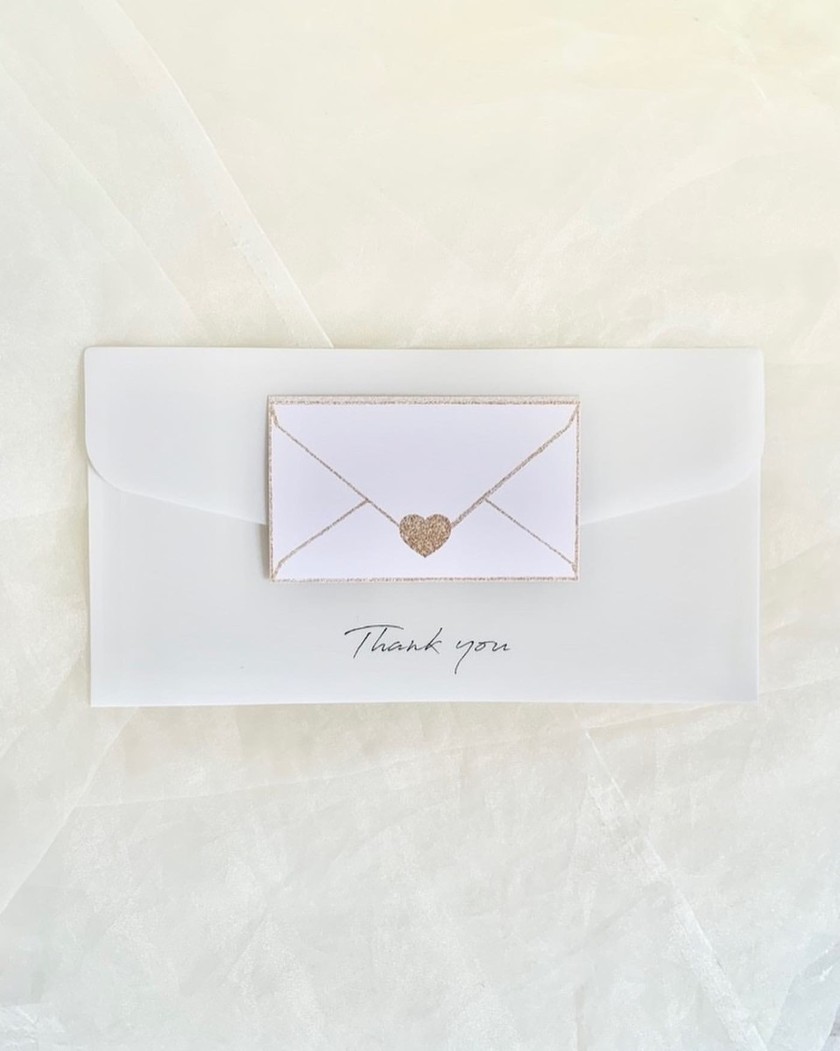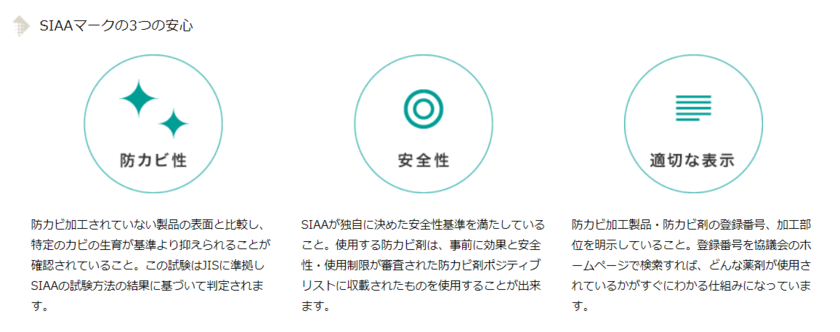
Understanding the Differences: What Sets Antibacterial Mask Cases Apart from Regular Ones?
2021.09.01 published
Wedding Mask Case Issue.
In these times.
There is an increasing number of couples distributing "mask cases" at weddings.
By providing a place to store the masks taken off during meals or photo sessions, they aim to avoid inconveniencing the guests. This also helps prevent any potential spread of infections from masks being placed carelessly around.
It's not an exaggeration to say that it has become an essential item for weddings.

Important factors when choosing a mask case...
The mask case should have a simple appearance that can easily match any outfit, and the design should also be usable by everyone regardless of age or gender even after the wedding.
Furthermore, to ensure that the couple can invite their guests with peace of mind and that guests can spend time comfortably,
✅ it’s best to choose one made from antibacterial material such as PP (polypropylene).
✅ Made in Japan
contributes to the peace of mind when making a selection.
However, as I looked through various options, I noticed voices from brides asking,
“What’s the difference with antibacterial types?”
“Isn’t it fine to just use a paper envelope as long as it holds the mask?”
I also thought, “Maybe I don't really understand the difference between antibacterial and non-antibacterial types...!”

Therefore, in this article, I will explain in detail, “What’s the difference between antibacterial mask cases and regular ones?”
I hope that by properly understanding the merits and demerits of antibacterial types and regular mask cases, you can choose one that suits your style*
What is antibacterial treatment?
The biggest feature of antibacterial treatment is that,
“Bacteria can be suppressed to less than one-hundredth compared to non-antibacterial treated items.”
For example, if a mask with bacteria is placed into a mask case:
With an antibacterial mask case…
It can suppress the growth of bacteria and reduce the adhesion of bacteria present in the air.
With a non-antibacterial mask case…
It has no effect in suppressing bacterial growth, allowing bacteria to proliferate within the mask case. Due to the lack of antibacterial effect, bacteria can also escape from the mask case, spreading beyond its confines. This means bacteria in the air can enter the mask case as well.
【Antibacterial treatment】 does not have sterilizing or disinfecting properties, so it cannot neutralize viruses, but it can suppress their proliferation and mitigate their spread.

At weddings, the masks will likely be placed in the mask case on the guest tables (to enable easy access when needed).
With an antibacterial type mask case, it can suppress the proliferation of bacteria, helping keep the table clean. However, using a non-antibacterial regular mask case or a paper envelope could potentially result in a breeding ground for bacteria from the mask case on the table. (Hygienically, this is essentially the same as placing the mask directly on the table.)
Masks are already moist (due to saliva or drinks), creating an environment that is conducive to bacterial growth. If placed inside a narrow non-antibacterial mask case, it becomes a haven for bacteria. (Especially with paper mask cases. The thought that moisture and bacteria could adhere to the paper is frightening, leading many people to avoid using them altogether.)
It’s alarming to think that bacteria might proliferate within a mask case you prepared with good intentions.
Given that the mask case will be placed on the table where guests eat, it’s best to choose one that has proper antibacterial treatment.
(In reality, selecting antibacterial treatment often increases the cost, which is a concern, but peace of mind is priceless.)

If it’s a mask case used only by you and not taken out of your bag, perhaps a non-antibacterial mask case would be fine since the worst outcome would just be having bacteria in your bag.
However, since the mask cases provided by the couple at the wedding will be placed on dining tables,
if precautions such as asking guests to disinfect or placing partitions at the reception have been taken, but the use of non-antibacterial mask cases leads to bacterial growth next to the food, all other preventive measures may be rendered futile.
What about DIY?
So, how about “making your own mask case”?
If you use “antibacterial” paper or PP material (such as clear file-like material), perhaps it’s okay to make them yourself. However, one must consider whether the person doing the DIY is 100% free from COVID-19. (There could be asymptomatic cases…)
If there’s a slight chance that I could be infected, and the handmade mask case ends up in the hands of a guest, it might be concerning, so for those worried, it's safer to purchase commercially available antibacterial mask cases. (Even with the label antibacterial, it’s important to understand that it can only suppress growth and not neutralize bacteria.)
I came across a story of a bride on Instagram who said,
“I was considering postponing the wedding due to concerns about infections, but decided to go ahead with strong infection countermeasures. While trying to create a paper envelope with names for seat cards and mask cases, my mother said, ‘Why are you hand-making mask keepers when you’re worried about COVID-19? Isn’t that hygienically questionable?’ That made me think.”
There are various opinions, but I understand the sentiment from mothers who feel unsure about hand-making something so close to the mouth that involves masks.

The "SIAA mark" certifying antibacterial treatment
Just as there are various standard marks like the "JAS mark" indicating high-quality food set by the Ministry of Agriculture, Forestry and Fisheries (showing food meets standards for safety), and the "Green mark" indicating products made from over 40% recycled paper set by the Recycled Paper Promotion Center (indicating that the product is eco-friendly),
Products that are certified as “antibacterial” are marked with the 【Antibacterial SIAA mark】. (Those certified are generally referred to as “antibacterial type”.)
This mark is established by the Antibacterial Product Technology Council (SIAA).

The SIAA stipulates that it must meet:
✅ Anti-Mold Properties
✅ Safety
✅ Appropriate Labeling
All of which must be cleared to display the mark certified by the Antibacterial Product Technology Council.

The SIAA mark can be displayed on products once certified (it is not mandatory), so depending on the design, some products may be SIAA certified but do not display the mark.
In fact, the mask case from marry focuses on design, so while it has obtained the SIAA mark, the mark is not present on the mask case itself.
When choosing an “antibacterial type mask case”, make sure to check whether it has obtained the SIAA mark on its website and so on.
➡ SIAA (Antibacterial Product Technology Council) website

To avoid regretting your choice!
I have explained in detail about what antibacterial treatment for mask cases is.
In reality, non-antibacterial options are often cheaper, but,
✅ To avoid feeling dissatisfied with having bought an antibacterial type that felt overpriced.
✅ To avoid regrets in case of emergencies for choosing a non-antibacterial, inexpensive option.
Understanding the merits and demerits of both, as well as what antibacterial specifications entail, I hope you can select the best option that fits your wedding.

![marry[マリー]](https://imgs.marry-xoxo.com/assets/marry_logo-e3a503203d635925f956631f4df079fe97f587ed360274455ead4fe26052b631.png)
 結婚式DIY
結婚式DIY
 ペーパーアイテム
ペーパーアイテム
 通販
通販
 ウェディングアイテム
ウェディングアイテム
 コラム
コラム
 ウェディングケーキ
ウェディングケーキ
 お金・節約
お金・節約
 髪型・メイク
髪型・メイク
 ドレス
ドレス
 和装
和装
 前撮り・ウェディングフォト
前撮り・ウェディングフォト
 靴・アクセサリー
靴・アクセサリー
 ブーケ
ブーケ
 挙式
挙式
 披露宴
披露宴
 ウェルカムスペース・装花
ウェルカムスペース・装花
 引き出物・ギフト
引き出物・ギフト
 BGM・ムービー
BGM・ムービー
 二次会
二次会
 ラブラブ結婚生活
ラブラブ結婚生活
 プロポーズ
プロポーズ
 顔合わせ・結納
顔合わせ・結納
 入籍
入籍
 式場探し
式場探し
 ハネムーン
ハネムーン
 ネイルアート
ネイルアート
 指輪
指輪
 美容
美容
 新郎
新郎
 両家家族(親族)
両家家族(親族)
 ゲスト
ゲスト
 韓国風
韓国風




